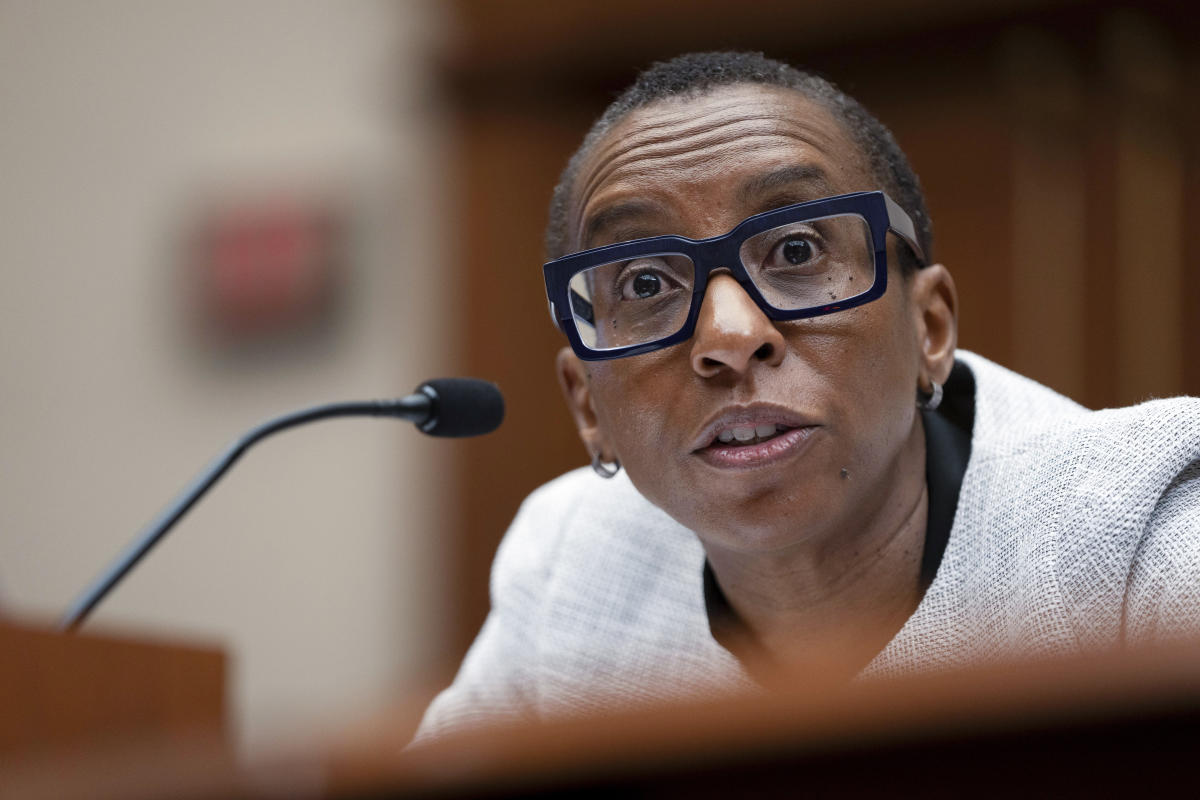Pro-Palestinian demonstrators across university campuses have made it clear that they are against Israel’s war with Hamas in Gaza, which is well into its sixth month. But what’s an American university supposed to do about a war in the Middle East?
Here’s a closer look at what protesters are demanding.
📣 What are students’ demands?
Student protesters have been calling for their universities to divest, i.e., cut business ties with Israel or any companies that are aiding its military campaign in Gaza that has killed more than 34,000 Palestinians, according to the Hamas-run health ministry. The most recent wave of these protests emerged on the campus of Columbia University in New York City last week and has since spread to schools across the country.
❌📈 What is divestment?
Divestment is when an organization — in this case, a university — takes back money it has invested in a certain fund or property. Specifically, the protesters want their universities to stop investing money in entities that they believe support Israel.
It might seem odd to think of universities investing money like a bank, but it’s in fact a similar process. Universities have endowments — money granted through alumni donations and other means — and they put that money into ventures like private equity funds, real estate and hedge funds. In turn, those types of assets can have investments anywhere in the world.
For example, the Guardian reports that Columbia University has direct investments in companies like: Amazon and Google, who have a $1.2 billion cloud-computing contract with the Israeli government; Microsoft, whose services are used by the Israeli defense ministry; and Lockheed Martin, which supplies weapons for Israel. Student protesters are demanding that Columbia withdraw its endowment investments from companies that are aiding Israel’s offensive in the devastated Gaza Strip.
In terms of the university’s direct financial ties to Israeli companies, however, Barron’s reports that these investments typically comprise a small portion of a university’s endowment portfolio.
According to Barrons, in 2023, just 24% of Columbia’s $13 billion endowment was invested in U.S. and foreign stocks, and Israeli companies make up less than 1% of the value of all stocks worldwide.
🗣️ What other demands are protesters making?
In addition to divestment, pro-Palestinian protesters are calling for their universities to take a number of other actions in response to the ongoing war. Here are some examples:
-
Massachusetts Institute of Technology: A student group calling itself Scientists Against Genocide is demanding that the school stop accepting alleged research funding from the Israeli military. MIT has declined to address claims that their school has financial ties to Israel, according to the Boston Globe.
-
University of Michigan: Pro-Palestinian demonstrators on campus say they refuse to move their encampment until the school stops sending money to investment managers who profit from Israeli companies or contractors. School officials have said they have no direct investments with Israeli companies. The school rejected protesters’ demands and cited a decades-old policy “that shields the university’s investments from political pressures.”
-
Columbia, Emerson, Harvard and Yale: Along with demands to divest, protesters are calling for greater financial transparency in how their schools spend their endowments.
-
University of California, Berkeley: protesters there are urging the school to enact policies to protect Palestinian students and sever academic ties with Israeli universities and programs, according to a social media post from UC Berkeley Divest.
↩️ Is there any precedent for divestment?
Divestment movements aren’t a new concept in the world of student activism. Throughout the 1970s and ‘80s, campus protesters successfully pressured universities to cut financial ties with companies that supported the apartheid regime in South Africa.
Columbia made headlines in 1985 when it announced it would sell $35 million of stock in U.S. companies that were doing business in South Africa.
The success of the anti-apartheid movement inspired a decades-long campaign against Israel’s policies towards Palestinians, known as the Boycott, Divestment and Sanctions movement, or BDS. The current demands for universities to divest from Israel are rooted in this movement.
Fossil fuel divestment protests have also proven to be a major success on a number of university campuses across the U.S. According to data from Stand.earth and 350.org, about 250 institutions of higher learning have committed to severing ties with polluting companies in response to pressure from student demonstrations.
Signup bonus from




